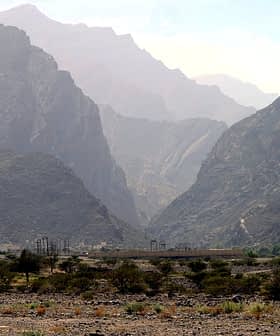Iran’s Olive Oil Sector Growing Despite Setbacks
Iran had a record-breaking year in terms of its olive oil production. However, poor government planning and corruption are thwarting the sector’s full potential.
Iran is estimated to have produced a record 9,000 tons of olive oil during the 2018/19 harvest year, according to figures from the International Olive Council (IOC).
Jalal Goglani, a researcher and former advisor to Iran’s Ministry of Agriculture, told Olive Oil Times that this figure will likely be revised down to 7,000 or 7,500 tons, which would still be a record yield.
The most difficult problem for growers is the lack of government support because they are considering their own interests
Iran’s agro-economy is centrally planned, so the country’s output of olive oil largely depends on the prices of green olives. When their price is better, olives are siphoned away from oil production in favor of canning.
“Most olive trees in Iran are dual purpose,” Goglani said. “The production of olive oil depends on the price of green olives. If the price of canned olives is higher, the [olives would be used for this instead].”
See Also:Olive Oil News from AsiaWorking under a centrally planned economy also means that olive growers’ needs are rarely considered and the government mainly works toward goals that are in its own interest. Olives and olive oil are occasionally used by the government as strategic imports in order to support regional allies.
“The most difficult problem for growers is the lack of government support because they are considering their own interests,” Goglani said. “Only what is important for Iranian government officials is what is nationally produced.”
In spite of ever shifting goals, there has been a push to grow the sector, which could lead Iran to becoming self-sufficient and possibly even exporting olive oil in the future. Last year, Iranians consumed 12,000 tons of olive oil, of which 3,000 tons were imported.
Part of the drive to reach this level of self-sufficiency could come in the form of cultivating more of Iran’s native olive varieties, which differ greatly from those of Mediterranean origin. Dakal, Fishomi, Gelooleh, Rowghani and Zard are the most prevalent native cultivars in Iran.
“These species are not genetically derived from Mediterranean cultivars and, according to Italian researchers at the Perugia Genetics Research Center, are truly genetic resources that can create the fields of new cultivars,” Goglani said.
He believes that introducing traits from these species into the Mediterranean gene pool could lead to olives that are more resistant to cold snaps, among other things, a phenomenon that damaged olive crops in Italy, Greece and California this year.
“These rare ecotypes are effective in producing resistant cultivars to adverse environmental factors, such as dryness, salinity, cold and heat,” Goglani said.
Iran currently has about 297,000 acres of olive trees planted, most of which are Arbequina and Koroneiki. There are plans to expand this acreage to 1.2 million. Along with creating jobs in more rural regions of the country, this effort would also help to mitigate the effects of desertification and erosion.
However, mismanagement and corruption in the sector have led to the failure of previous expansion plans and caused a lot of damage to olive growers and oil producers.
“Imported foreign seedlings have caused the transmission of illnesses [in the country],” Goglani said. “Because of these mistakes, [almost 250,000 acres] of olive groves in the country were only 40 percent productive.”
Iran has also recently suffered olive tree damage from frost, drought and the olive fly.
As long as there is erratic weather coupled with ulterior motives within the sector, events such as this one are almost certain to continue, Goglani believes.
But, there is some hope. Last October Iran ratified the 2015 International Agreement on Olive Oil and Table Olives at the United Nations’ headquarters in New York. This meant that Iran implicitly agreed to act with more transparency regarding its olive oil sector.
“Membership in the council has a good effect in terms of transferring technical knowledge to the Iranian olive industry, because technical knowledge is indispensable for production, although government officials unfortunately do not pay much attention to this,” Goglani said.
- International Olive Council








